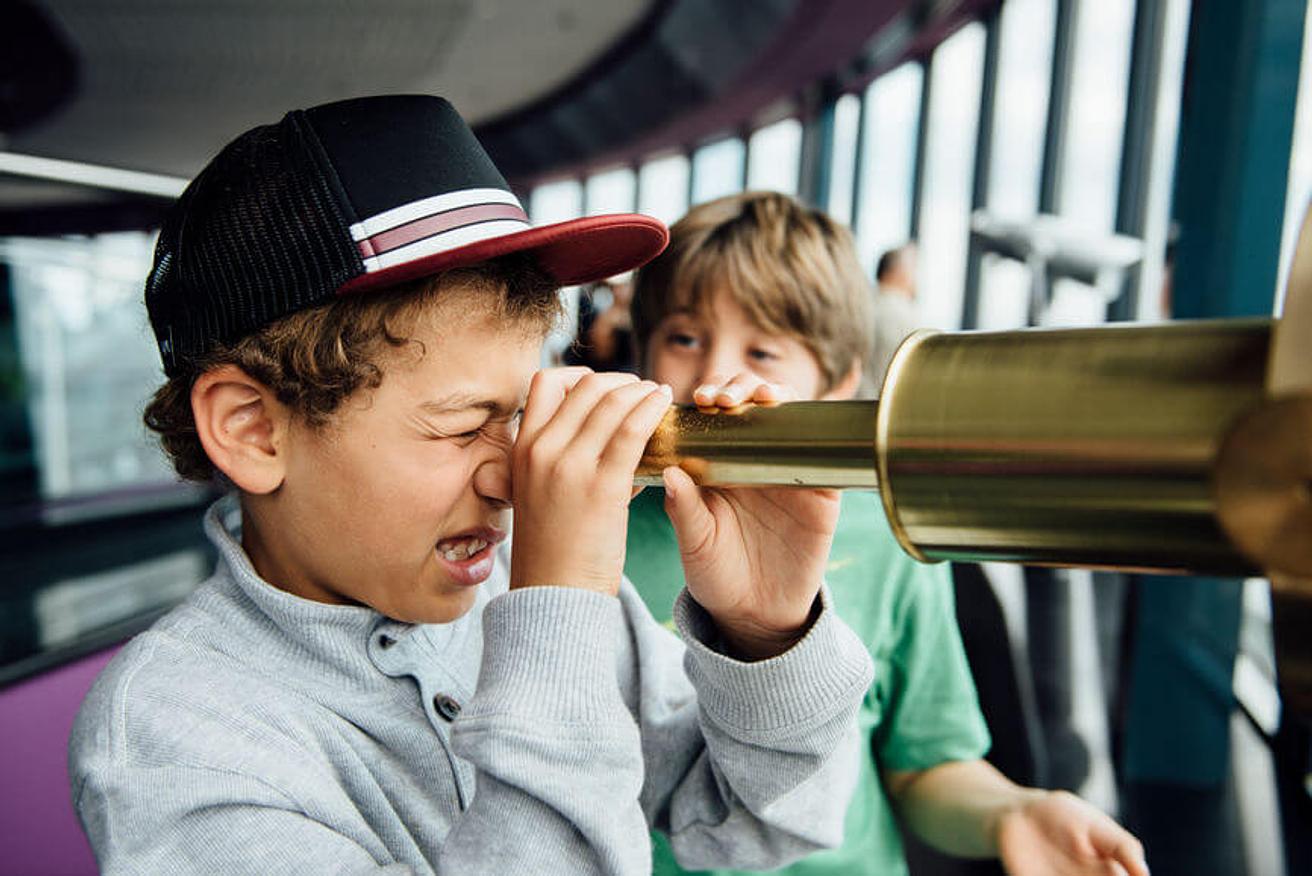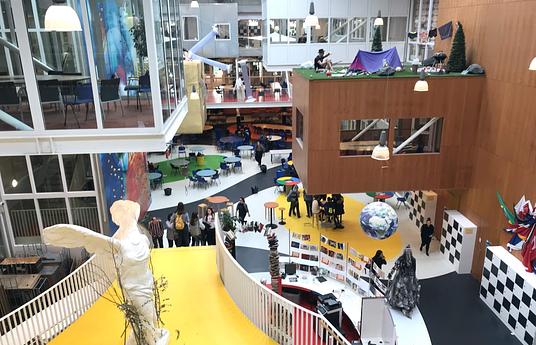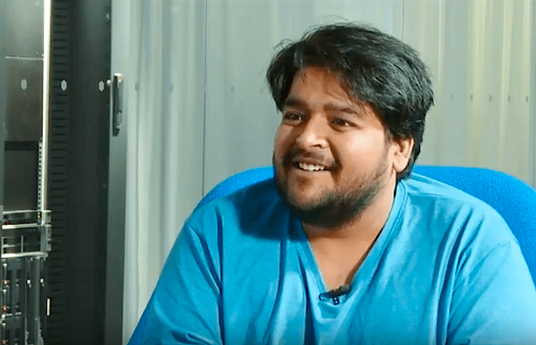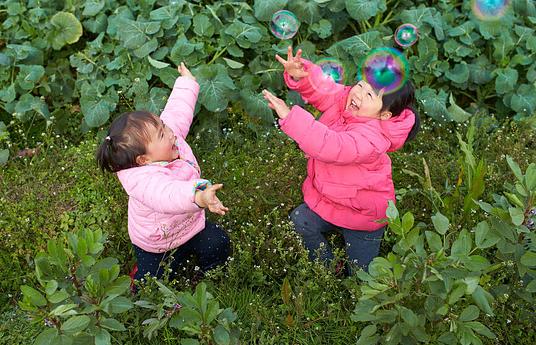“You go to school to learn. We believe that meanwhile, you can also learn a lot about the world around you” says Rob Houben, the manager of the Agora School in Roermond, Netherlands. Agora is a school with no classes, no classrooms, and no curriculum. It was selected for last year’s HundrED Global Collection for their innovative work in the field of education.
In April, Rob participated in a panel discussion that brought together educators, representatives from healthcare departments, and other local officials to discuss how to safely reopen schools during COVID-19. Rob described feeling very conflicted after this discussion. He explained that typically, he spends most of his time thinking about how to get kids out of the classroom. He believes that kids have to get out of school to learn - to go to where the knowledge is.
Rob told me that the coronavirus situation reminded him of a book he read called The Corporate Tribe, written by Dr. Danielle Braun. In the book, Braun describes a ritual by the Ndembu, a tribe from Western Zambia. In the Ndembu tribe, all boys between the ages of 10 and 12 must participate in a coming of age ritual that takes place over the course of 4 months. There are three phases to this ritual: the separation, the meanwhile, and the reunification.
In the first phase, after a great celebration, the boys are chased out of their village by their mothers, who then weep hysterically for the loss of their children. The second phase is the liminal phase, also known as the meanwhile, during this phase, the boys make camp in a forest called, the place of death. This is a place where the child dies and a man is born. Under the guidance of older men and a shaman, the boys are offered life lessons. They are forced to overcome a variety of challenges in order to prove their maturity. The third and final phase is the reunification, or the integration, in this phase the boys return to their village, they are decorated with white circles and an elaborate party is held in recognition of their successful transformation.
Rob remarked that often those of us outside of the Ndembu tribe tend to skip or hurry through the meanwhile. We instinctively avoid the discomfort and uncertainty. In contrast, the Ndembu intentionally use and stretch this time in order to develop and change.
Rob described this time during the coronavirus crisis as our ‘meanwhile.’ We are eagerly awaiting a return to normalcy - the day everything opens up and we can go out and meet our friends and families without worry. Rob drew many parallels to us now and the Ndembu boys, we too have entered into the forest of the dying. We are seeking guidance from our elders, those in the government, and health sectors. We are currently facing terrible challenges and difficult tasks fraught with danger and strife.
However, this difficulty brings valuable lessons and a new phase of growth and change. We have seen significant environmental improvements. We have learned that we do not always need to be physically together to cooperate and communicate. Rob noticed a particular opportunity in the education sector, an opportunity to help schools facilitate rich growth and development for children.
He told me a story about when he was a child. He remembered he used to bike past a car factory on the way to his school. He said he always used to wonder what was going on inside. He was never able to see inside that factory, there was never an opportunity. He was sure that other children would appreciate the opportunity to look inside these kinds of institutions.
Right now, due to the coronavirus outbreak, many places like factories, theatres, restaurants, and barbers have temporarily shut down or are working at reduced capacity. As a result, the people who work in these places are left without work or much else to occupy their time.
At the same time, we have pupils now returning to school. However, there are many expected challenges to reopening schools including Parents, children, and educational staff who are unable or unwilling to come back right away; teachers who do not feel safe teaching for various reasons; children who have to find their place again; reduced or overwhelmed school staff.
Rob thought why not, in the meantime, use this opportunity to let students go to the knowledge? Maybe not all would want to look inside a factory but instead a theater, or maybe a sports stadium, or a dance studio.
Over the past few months, most kids have been largely learning remotely, isolated from their teachers and classmates. Rob was sure that what they didn’t need is a return to ‘traditional education’. Instead, what they need is to be together, working actively and physically! They need space to unpack this experience with others. They need to get out and gain new experiences and practices.
Rob began discussing this idea and by the end of April had convened a working group of advisors from the Association for Public Health and Safety in the Netherlands, and from the Netherlands Center for Youth Health. Within days they had received requests from all across the province. Parents, schools, industry representatives, and people who simply want to help. This only served to strengthen their belief that a project like this could work. The idea that this was a scalable way to shape education - together with the community. It was also important that students were able to curate their own experiences.
Although the idea for Meanwhile was developed during COVID, Rob sees its potential to have a lasting impact on schools. The idea is to encourage schools to go outside and collaborate with their environment because Rob says,
“It takes a village to raise a child, not just a school.”
This week Meanwhile facilitated a full day for a school in Roermond. It included an outdoor activity, a mix of sports and biology to learn more about the human body. Another school partnered up with professionals working with the environment to provide a rich learning experience for children about local nature, successfully integrating biology, physical education, and art. In this way, the program is able to utilize the value and expertise of the entire community and provide valuable learning opportunities for all.
The project eventually caught the attention of Meet the Youngsters and AI Software Company Nalantis, who offered to create an online platform for the Meanwhile Project to help them scale quickly while also keeping their costs down.
Because for Rob and the project’s many stakeholders, Meanwhile is more than just a temporary solution. It is a platform that can potentially impact the community for years to come. Meanwhile is a chance to create long-lasting learning opportunities through a partnership with schools, students, and the community at large. The question then is not is this safe? The question is are we ready for when it is safe?
You can find out more about Rob Houben and the Agora School Model here.



